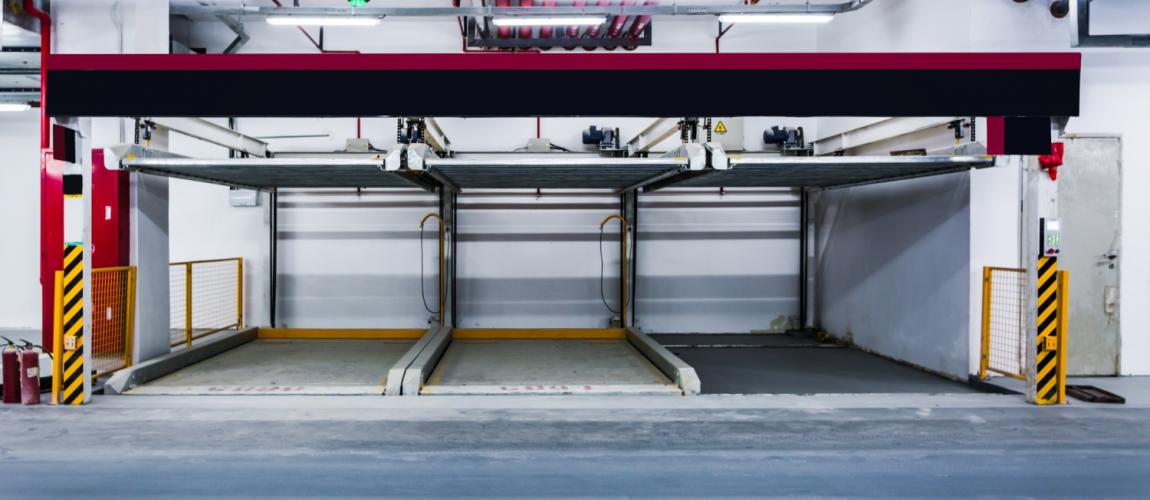Automated Multi-level Car Park, Connaught Place, New Delhi, India

Photo Credit: Image by Freepik
On this page: Challenging Case: Automated Multi-level Car Park, Connaught Place, New Delhi, India. Find more at the Municipal Public-Private Partnership Framework - Project Summaries section for brief summaries of around 100 projects from around the world, examples of successes and challenges, as well as innovative ideas on solutions, or visit the Guidelines on Innovative Revenues for Infrastructure section.
Project Summary: Background Connaught Place, located in the heart of New Delhi, India, is one of the busiest markets in New Delhi. The increasing number of vehicles visiting Connaught Place, however, was straining the existing road due to unauthorized parking and causing congestion. To ease the congestion, the New Delhi Municipal Council (NDMC) decided to construct automated multi-level parking lots in Connaught Place using a PPP. Project Structure NDMC awarded the project to DLF, one of India’s real estate giants. DLF undertook to design, finance, construct, and operate the automated multi-level car parks, called “CAPITOL POINT,” under a 30-year concession, at the end of which the car parks would be transferred to NDMC. The “CAPITOL POINT” would be an 11 floor, state-of-the-art automated car parking system, equipped with technology like car lifts, pallets, and computerized control systems that operate 24/7 and with a capacity of 1,408 vehicles. The building would also have commercial units and office space on its first two floors. The project cost was estimated at INR 1.2 billion (USD 17.1 million). NDMC assumed responsibility for site-related risks, including acquiring permission for the installation of enabling infrastructure, providing space, and undertaking civil repair works and resurfacing works, if required. The private concessionaire accepted most other risks, including financing, demand, operation, and maintenance risks. DLF would pay NDMC about INR 2.2 million (USD 31,325) per year as a lease payment for the space provided. DLF would derive its revenue from the car park user fees collected, as set by the municipality (about INR 10 (USD 0.14) per hour, per car), and rental fees for the commercial units and office spaces. Lessons Learned The multi-level car park was inaugurated in June 2012. As of 2017, the parking lots were significantly under-utilized, with less than 15-20 percent of the space being used. This seems largely due to customers preferring to park on the roads. Reports indicated that the facility was not very user-friendly, noting that it took more than 20 minutes to get to the parking lot and retrieve a car. News reports indicate that DLF was let to decide on its own how to attempt to recover the cost. To this end, NDMC suggested using the traffic police to enforce regulations against illegal parking on the streets, to direct more people to use the parking lot./p> The case shows that being “user-friendly” can be a critical aspect of any public facility. This may take shape in the design of the asset, accessibility of the location, affordability of fees, and cost-benefits as compared to other options. In this case, a key problem was the time it took to retrieve a car, which inconvenienced customers as compared to parking on the street. In addition, this case shows how the public authority cannot expect to shift all of the operational risk to the private partner under a PPP, as it is ultimately the public authority’s responsibility to ensure that the public receives the necessary service. Where obstacles to effective implementation arise, the public partner should be actively involved and provide needed support to the private partner to ensure the project’s success. In this case, that may have meant mobilizing traffic police to curtail illegal street parking, instead of deferring entirely to the private operator.1 Footnote 1: Case source(s): https://www.dnaindia. com/india/report-delhis- hi-tech-ghost-parkinglots- 2294616, Accessed on May 19, 2019. http://www.parking-net. com/parking-news/dlfndmc- launch-capitolpoint- multi-level-carpark- at-c-p, Accessed on May 19, 2019. http://www.dsclimited. com/dev/index. php?modepage=57&m =8&c=18, Accessed on May 19, 2019. https://www.indiatoday. in/india/north/story/ connaught-place-delhifirst- automatic-multilevel- parking-compl ex-105505-2012-06-13, Accessed on May 19, 2019. https://www. hindustantimes.com/ delhi-news/at-rs-10- per-hour-connaughtplace- gets-its-firstmulti- level-parking-lot/ story-sXqIMhPjCO yWizvhKgTh6M.html, Accessed on May 19, 2019. http://smartcities.gov.in/ upload/tender/58a1a914 8b320RFP-SMARTPARKING. pdf Accessed on August 13, 2019.
The Guidelines on Innovative Revenues for Infrastructure (IRI) is intended to be a living document and will be reviewed at regular intervals. They have not been prepared with any specific transaction in mind and are meant to serve only as general guidance. It is therefore critical that the Guidelines be reviewed and adapted for specific transactions.
To find more, visit the Innovative Revenues for Infrastructure section and the Content Outline, or Download the Full Report. For feedback on the content of this section of the website or suggestions for links or materials that could be included, please contact the Public-Private Partnership Resource Center at ppp@worldbank.org.
Updated:
TABLE OF CONTENTS
I. Innovative Revenues for Infrastructure (IRI)
2. Introduction to Commercial Value Capture (CVC)
3. Applying CVC in Infrastructure Projects
2. Case Studies in CVC from International Experiences
Related Content
Select WBG PPP Toolkits
Featured Section Links
Additional Resources
Climate-Smart PPPs
Type of ResourceFinance Structures for PPP
Type of ResourceFinancing and Risk Mitigation
Type of Resource